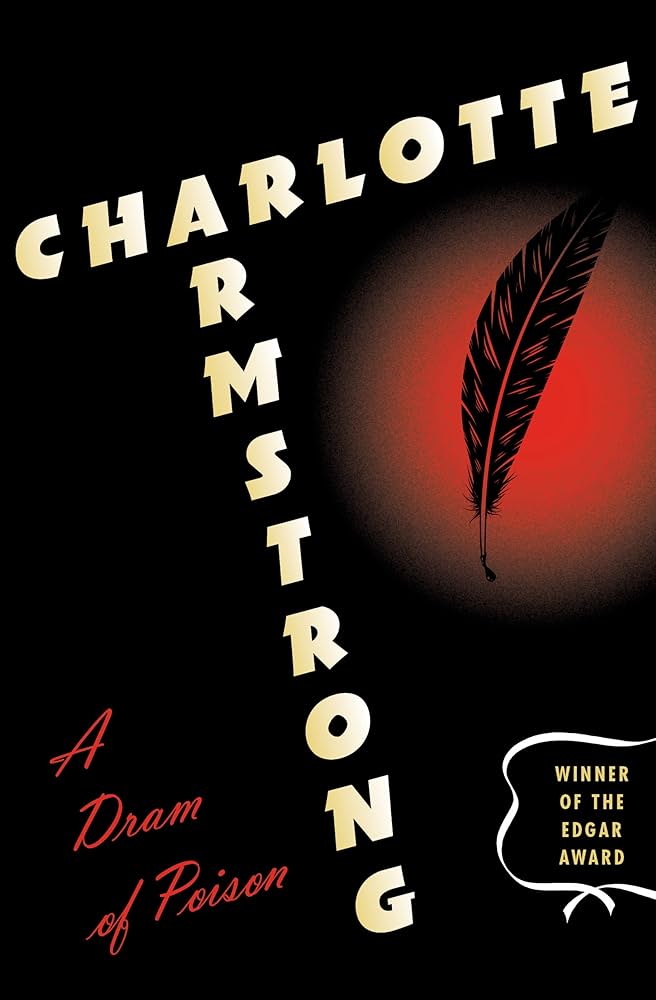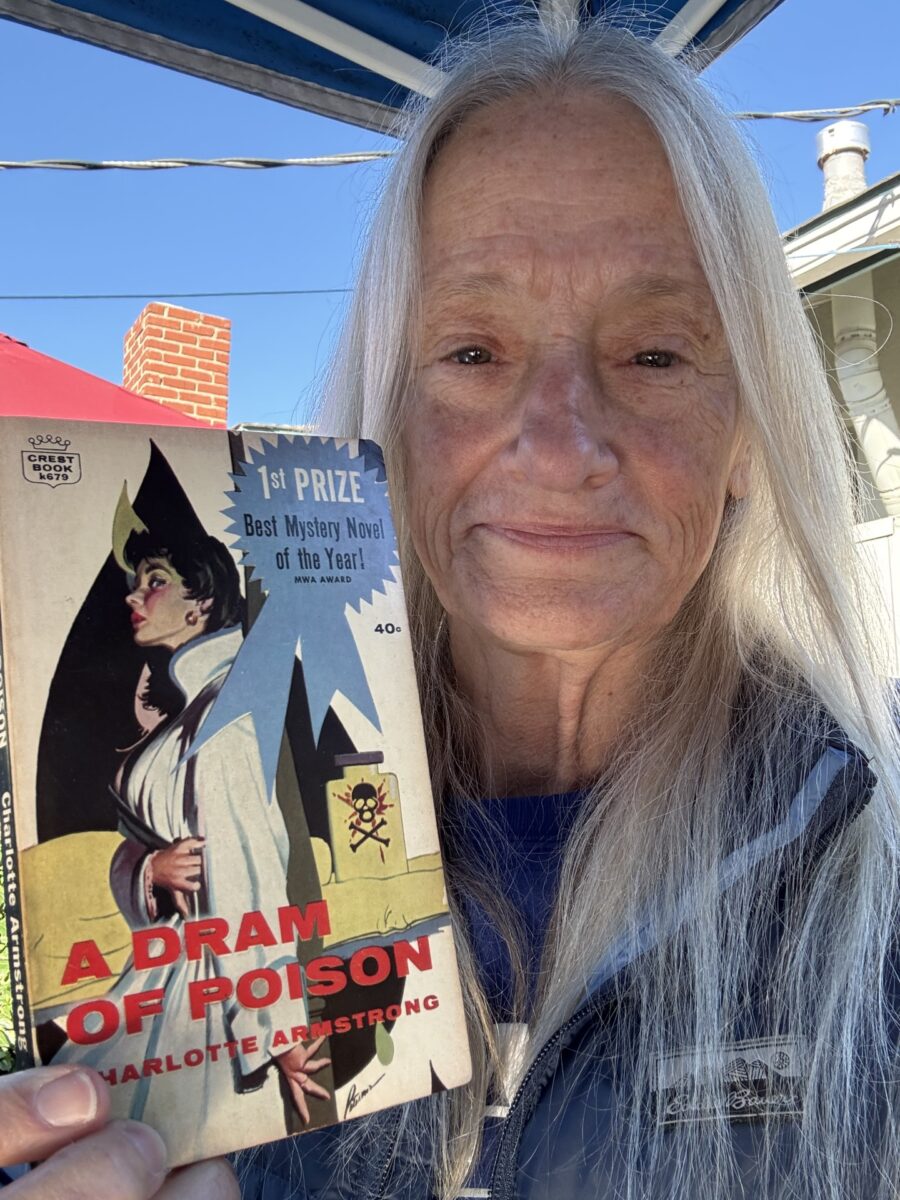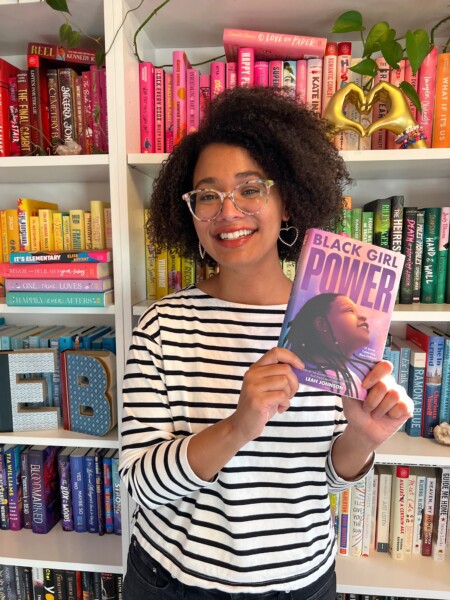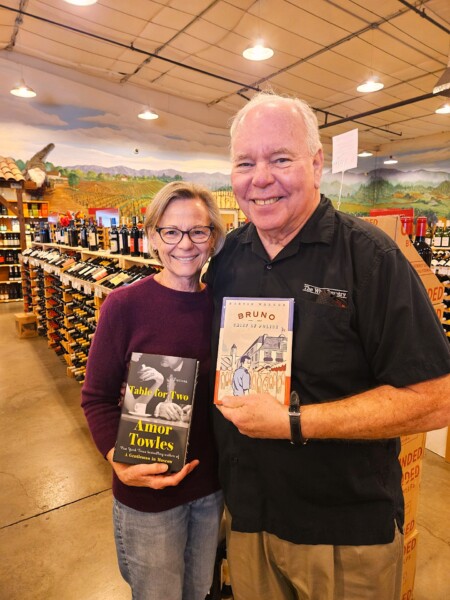Great leaders share a passion for reading, a practice that fuels imagination and broadens perspective. In Long Beach Leaders are Readers, we highlight these inspiring figures in our community as they share their favorite books and stories.
This month, we’re proud to feature Jan Burke, a celebrated Long Beach author whose fourteen novels—including the Edgar Award-winning Bones—have captivated audiences worldwide. Jan’s career is marked not only by bestselling titles and awards but also by her dedication to forensic science reform, which has led to significant legislative advancements and funding increases for crime labs.
Jan’s love of storytelling and her commitment to making a difference have left a lasting impact on the literary and civic landscape. We invite you to celebrate Jan Burke with us as she shares the book that captures her belief in the power of cooperation and community: A Dram of Poison by Charlotte Armstrong.

A Dram of Poison
by Charlotte Armstrong
Meet Jan Burke:

What made you choose A Dram of Poison as your book recommendation?
I have a difficult time picking a favorite book, and choosing one book among Charlotte Armstrong's body of work was no easy task. A Dram of Poison came to mind, but not because of its most obvious merits — she was a master of suspense, her writing is excellent. I chose it, though, because Armstrong's solution is unique for the genre and so reflective of something I believe we need more of now — cooperation and community. Resolution comes about not because of a single highly-skilled individual, but when a group of strangers in an endangered city pull together. Tne overwhelmed protagonist feels ashamed and doomed — and that he has likely doomed others — until others decide to help him tackle what seems an unsolvable problem.
Charlotte Armstrong became the first American woman to win Mystery Writers of America's Edgar Award for Best Novel in 1957. It would be 1991 before another American woman, Julie Smith, won the award. This long stretch undoubtedly has little to do with how able later American women writers were, but Armstrong's recognition at a time when women writers of crime fiction were often overlooked is noteworthy.
Were there any stand-out scenes or particular passages from your recommended book that have impacted your life?
[Paul, speaking of Mr. Gibson, who has stolen a powerful poison with the intention of committing suicide, and has since lost track of the poison.] “…He's all right now.”
“What puts him all right, all of a sudden?” The bus driver said.
“Why, he knows…he has friends. He's got everything to live for.”
“Candy?” said the bus driver.
“I don't know what you mean.”
“I never could get that,” said the bus driver…”How come — now you take a suicide sitting on a ledge up high…see? People trying to talk him out of it, offer the same as lollypops. Everybody's his friend, they tell him. Come home, the dog needs him. Or he can have beer. He can have chocolate….Seems to me if a man gets to the point of taking his life he's got more serious things in his mind. It's no time for candy, is it?”
“You are wrong,” Mr. Gibson said forcefully.
“That so?”
“The is one moment when a lollypop is enough, either way.”
Has a book ever changed your life?
Yes, many books have done so.
What do you hope other readers get from reading your book recommendation?
That our small acts of kindness toward one another, taken together, can be more powerful than we expect.
How old were you when you got your first library card?
I was about twelve, but my mother, a PTA President, established the first school library at our elementary school, so libraries became important to me from an early age.
Did someone read to you when you were a child?
My family was full of readers. My older sister is eight years older, and so I learned to read very early because I always wanted to do whatever she was doing. In addition to being read to, my mother might refuse a request for a toy, but she could always find a way to stretch the grocery money for a Little Golden Book.
What book will you read next?
Every October, my husband and I join a group of friends and fans of Sharon Lee and Steve Miller in nightly readings of Roger Zelazny's A Night in the Lonesome October. We are behind this year, but will soon start catching up to read a chapter each night.
Why do you think reading is important?
We are biologically — and every other way — wired to hear and tell stories. Reading gives us a pathway to learning, keeps our minds more flexible, helps us to look at shared experiences in new ways. If what we read rings true to us, we know ourselves a little better. Reading brings us together. We are all a little less alone when we read.
Jan Burke, Bestselling Author

About Jan Burke
Jan Burke is the New York Times and USA Today bestselling author of fourteen books and numerous short stories. Her critically acclaimed novels include Bones, which won the Edgar for Best Novel, as well as Flight, Nine, and Bloodlines.
Her short stories have received the Agatha, the Macavity, and the Ellery Queen Mystery Magazine Readers Award. Her work has been published internationally and optioned for film and television.
She is a nationally recognized advocate for the improvement of forensic science whose work has resulted in changes in laws, better funding for crime labs, and increased abilities for the identification of remains.
Find A Dram of Poison at your local library branch soon!



